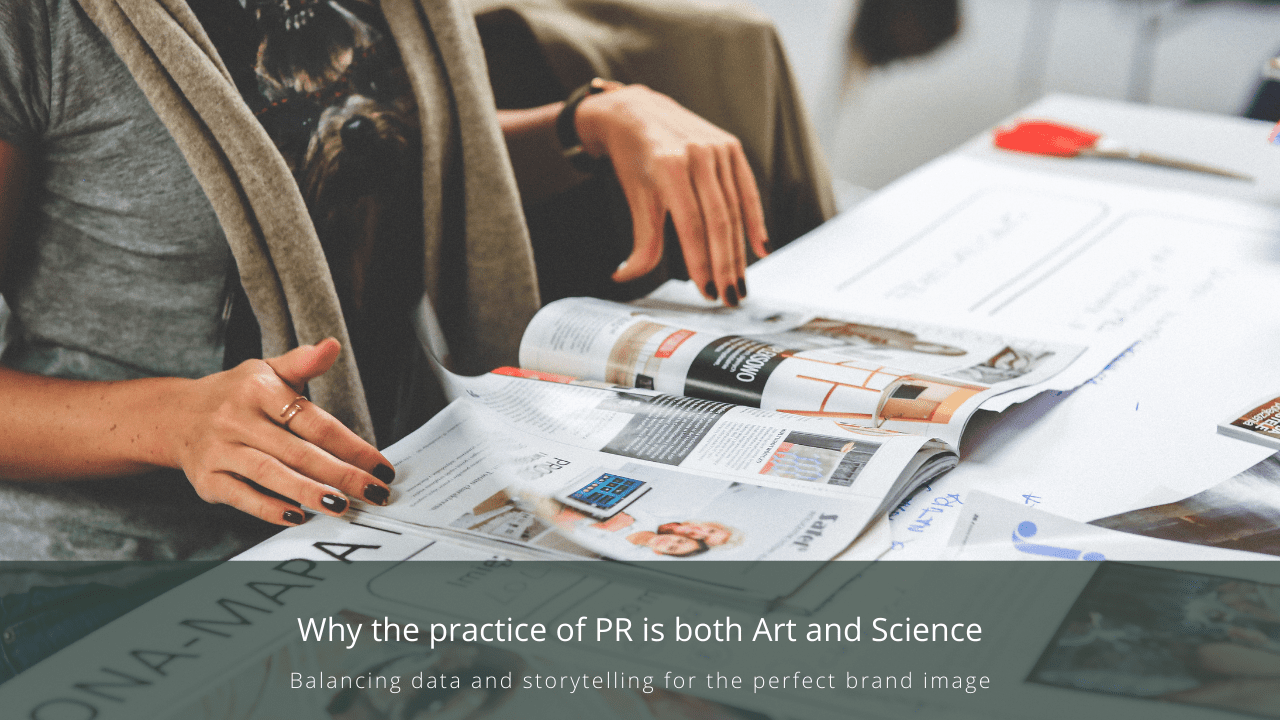Edward Bernays, one of the most prolific writers in the field of public relations, was a strong proponent of the notion that PR should be categorised as a Science. The notion evoked a pandemonium of mixed responses, mainly by those who were of the belief that PR is an art form. This happened in the 1920s.
It goes without saying that a lot has changed in the past hundred years. Today, it is not so easy to limit the practice of public relations as a mere science or art, when there is more to it. In this noisy and multilateral world, the path-to-purchase is non-linear.
Fundamentally, one should approach this discipline as a craft with equal parts art and science. PR is basically communications that are backed up by data (Science), yet crafted with passion (Art).
Combining both disciplines
PR cannot be sustainable if it’s limited to a set of repeated tactics grounded solely on art or science, especially with the fragmentation of media today. Almost everything related to how we, as a society, look for, digest, interact with and share information is vastly different.
There are three pillars we feel every communications program, campaign and effort must be based on to be successful: data, passion and focus, or tactical precision.
We talk about managing PR outreach in a post-COVID world.
Data

Effective PR and communications programs are driven by insights. Thorough knowledge of the market, the audience and the product should guide every creative brief.
Furthermore, data should be used for more than gauging performance. It should be used to set definite benchmarks and KPIs that might reflect a company’s progress.
There is a pool of data uncovered by reliable sources- from trending subjects, to search behaviours and demographic trends. Identifying and gleaning the relevant points of insight unlocks the value and lays the foundation for compelling and relevant communications.
Passion
Passion, empathy and humility — these things are intangible. You can groom your skills all you want, but having these innate values is what distinguishes your brand.
In this B2B world, there’s a huge tendency to rely on a product’s bells and whistles. Yet what most don’t realise is that features and benefits, to a large extent, can be easily matched. An emotional connection to a brand cannot.
The art of storytelling is one that is crucial to building an effective pitch, campaign or communications program. The narratives that an organization publishes has as much bearing on loyalty as the product itself.

Organizations must reach the right balance of promoting their product while simultaneously forging a real connection with their audience. To be truly distinguished and successful, a company should find a higher purpose and tell a story only they can tell. That is art.
Explore how to apply storytelling conventions to PR.
Tactical precision & focus
A great story, well told and backed up with research, can still fall flat if it doesn’t reach its target audience. This is an indisputable fact pertaining to both earned and owned media.
Companies must aim for a combination of owned content with targeted messages along with earned and paid placements in hyper-targeted media outlets.
The aim is to maximise these assets, appear in the right search results and get more eyeballs.
Ultimately, the secret to the success of any modern PR campaign is to use the art to inform the science and strive towards targeted, quantifiable results. An emotional bond between a company and its audience cannot be contrived — that’s the art. Everything else that backs up the story: the who, what, where, when and how, can — that’s the science.
Curious to learn more about content marketing or PR? Write to us at hello(a)syncpr.co

